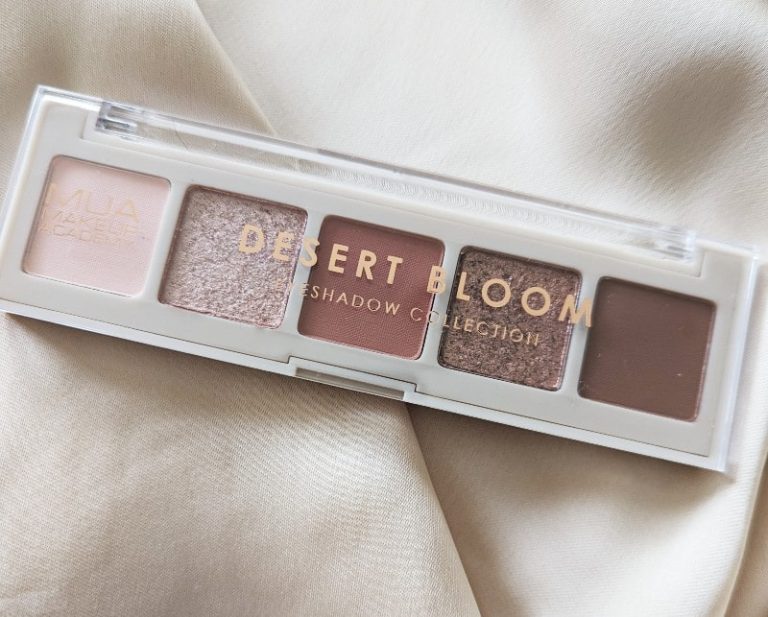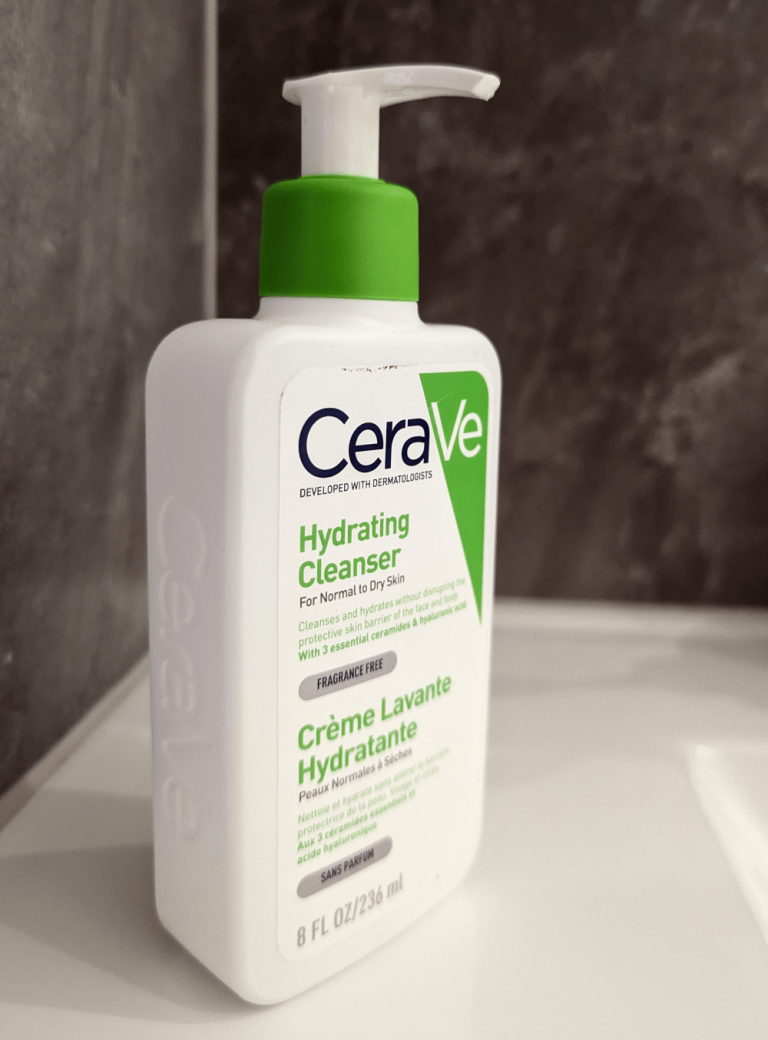Skincare Routine Steps: A Simple Guide for Clear and Healthy Skin
Are you searching for a basic skincare routine that will help you to glow from within. Knowing the vital steps for your skincare routine at home will get you into the habit of regular cleansing and moisturising to keep your complexion looking radiant.
In this guide, you’ll discover:
- Skincare routine steps for clear and healthy skin
- What goes first in a skincare routine, and the different types of products you can use
- Why sun protection is an important step in a morning skincare routine
- Additional targeted treatments you can use
- Some key ingredients to avoid if you have sensitive skin
Related Posts:
Understanding Your Skin Type
Understanding your skin type is the first step in creating a skincare routine that works for you.
Here are some common skin types and their characteristics. See if you can spot any common features that you may have.
Dry skin
If you have dry skin, your skin may feel tight and rough, and you may experience flakiness or itching. Dry skin is often caused by genetics, aging, or environmental factors, such as cold weather or low humidity, so don’t be too dismayed if you have dryness.
The best products for dry skin include a gentle cleanser and a moisturizer that contains hydrating ingredients like hyaluronic acid or glycerin. It’s also a good idea to avoid using hot water when washing your face, as this can further dry out your skin.
Oily skin
Oily skin types tend to look shiny or greasy, and you may be more prone to acne breakouts.
To care for oily skin, use a gentle cleanser and a lightweight, oil-free moisturizer. Look for products that contain salicylic acid or benzoyl peroxide, which can help to control acne breakouts.
Sensitive skin
Sensitive skin skin types react easily to certain ingredients or products, causing redness, itching, or stinging.
To keep your sensitive skin under control, you should use gentle, fragrance-free products that are formulated exclusively for sensitive skin. Look for products that contain soothing ingredients like aloe vera or chamomile as these feel gentle on the complexion.
Acne-prone skin
If you have acne-prone skin, you may suffer from frequent breakouts, blackheads, or whiteheads. Acne can be caused by a variety of factors, including genetics, hormones, and bacteria – it’s generally not determined by chocolate or sugar, although diet can play a part.
Use a gentle cleanser on acne skin, and products that contain acne-fighting ingredients, such as salicylic acid or benzoyl peroxide. Avoid using harsh scrubs or exfoliants, which can irritate your skin and make acne worse.
Mature skin
Mature skin often appears drier and thinner than it was in your younger years, and you may experience wrinkles, fine lines, and age spots. This occurs due to a natural decrease in collagen and elastin production.
Mature skin types should opt for a gentle cleanser and a moisturizer that contains anti-aging ingredients like retinol or vitamin C.
The Importance of a Skincare Routine
So, why should you stick to a consistent skincare routine? Here are a few reasons why having a skincare routine is important.
Prevents skin problems
A skincare routine helps to prevent various skin problems like acne, wrinkles, and dark spots. By following a consistent routine, you’ll keep your skin clean, hydrated, and protected from harmful environmental factors like pollution and UV rays.
Improves skin texture
A good skincare routine enhances the texture of your skin. It also can help reduce the appearance of fine lines, wrinkles, and uneven skin tone.
Boosts confidence
When your skin looks and feels healthy, you feel more confident. A skincare routine helps you to achieve your desired look and boost your self-esteem. It’s also great for relaxation too.
Saves money in the long run
This may seem counter-intuitive as investing in a skincare routine may seem expensive at first. However, by taking care of your skin, you can prevent costly treatments and procedures down the line.
Skincare Routine Steps
Now, we’ve gone over the basic information, it’s time for the good stuff – skincare routine steps you need to know, and it all starts with cleansing.

Cleansing
When it comes to skincare routines, cleansing is one of the most important steps to ensure healthy and glowing skin.
Cleansing eliminates traces of dirt, oil, and impurities from your skin, which can lead to clogged pores, breakouts, and other skin issues. In this section, I’ll go into the different types of cleansers available and how to choose the right one for your skin type.
Types of cleansers
Here are some of the most common types of cleansers.
- Gentle Cleanser – This type of cleanser is perfect for those with sensitive skin. It’s generally formulated with mild ingredients that won’t irritate or dry out your skin.
- Oil-based Cleanser – If you have oily or acne-prone skin, an oil-based cleanser may be a good option for you. Oil-based cleansers work by dissolving the oil and impurities on your skin, leaving it clean and refreshed.
- Water-based Cleanser – Water-based cleansers are great for removing makeup and other impurities from your skin. They are gentle and effective, making them a popular choice for many people.
- Micellar Water – Micellar water is a gentle, water-based cleanser that is perfect for removing makeup and dirt. It’s formulated with tiny micelles that attract and remove impurities from your skin.
Toning
After cleansing your skin, the next step in your skincare routine is toning. Toning helps to balance your skin’s pH levels, remove any remaining impurities, and prepare your skin for the next steps in your routine.
There are two main types of toners: toners and astringents. Toners are typically gentle and hydrating, while astringents are more powerful and can be drying. It’s important to choose a toner that is appropriate for your skin type.
When choosing a toner, look for ingredients that will help soothe and hydrate your skin, such as aloe vera, chamomile, or hyaluronic acid. Avoid toners that contain alcohol or other harsh ingredients that can strip your skin of its natural oils.
To apply toner, simply pour a small amount onto a cotton pad and gently swipe it over your face. You can also use your hands to pat the toner onto your skin.
Serums
Serums are a great addition to your skincare routine. They’re lightweight and easily absorbed by the skin, delivering a high concentration of active ingredients.
Types of serums
There are different types of serums that target specific skin concerns. Here are some common types of serums and their benefits.
- Hyaluronic Acid Serum – Hyaluronic acid is a natural substance that helps to hydrate and plump the skin. This serum is perfect for all skin types, especially dry and dehydrated skin.
- Vitamin C Serum – Vitamin C is a powerful antioxidant that helps to brighten the skin and improve the appearance of fine lines and wrinkles. All skin types, especially dull and aging skin can use this serum.
- Ferulic Acid Serum – Ferulic acid is another antioxidant that helps to protect the skin from environmental damage. This serum is great for all skin types, especially those with sun-damaged skin.
- Retinol Serum – Retinol is a form of vitamin A that helps to improve the appearance of fine lines, wrinkles, and uneven skin tone. Aging skin should use this to enhance their complexion.
- Peptide Serum – Peptides are amino acids that help to improve the appearance of fine lines and wrinkles. This serum is ideal for all skin types, especially aging skin.
- Antioxidant Serum – Antioxidant serums contain a variety of antioxidants that help to protect the skin from environmental damage.
- Caffeine Serum – Caffeine is a natural stimulant that helps to reduce puffiness and dark circles around the eyes. This serum works well for all skin types, especially those with tired-looking eyes.
- Alpha Hydroxy Acid Serum – Alpha hydroxy acids (AHAs) are a group of acids that help to exfoliate the skin and improve the appearance of fine lines, wrinkles, and uneven skin tone.
Moisturizing
Moisturizing is an essential part of any skincare routine as it keeps your skin hydrated, soft, and supple. Here are some of my top tips for moisturizing your skin effectively.
Types of moisturizers
There are several types of moisturizers available, each with its own unique benefits.
- Lotions – Lotions are lightweight and absorb quickly into the skin. They are ideal for daily use and are suitable for most skin types.
- Creams – Creams are thicker and more hydrating than lotions so they’re perfect for dry or mature skin and can be used both day and night.
- Gels – Gels are lightweight and water-based, providing good hydration for oily or acne-prone skin.
- Oils – Face oils are rich in hydrating ingredients, such as ceramides and can be used to nourish and hydrate the skin. They are best used at night and can be layered over a moisturizer.
It’s also important to use a moisturizer with SPF during the day to protect your skin from the sun’s harmful UV rays.
Sun Protection
Protecting your skin from the sun’s harmful rays is crucial for maintaining healthy and youthful-looking skin. Sun damage can lead to premature aging, dark spots, and even skin cancer so read the following tips to help prevent any harm to your skin.
- Use Sunscreen. The most important step in sun protection is applying sunscreen. Look for a broad-spectrum sunscreen with an SPF of at least 20. A broad-spectrum sunscreen will protect your skin from both UVA and UVB rays.
- Choose Mineral Sunscreen. Mineral sunscreens use zinc oxide or titanium dioxide as their active ingredients. They work by sitting on top of your skin and reflecting the sun’s rays. Mineral sunscreens are a great option for those with sensitive skin or those who prefer natural products.
- Consider Chemical Sunscreen. Chemical sunscreens use ingredients like avobenzone to absorb the sun’s rays. They are often easier to apply and can provide better protection against UVA rays. However, some people may be sensitive to the ingredients in chemical sunscreens.
- Wear Protective Clothing. Wearing protective clothing like hats, long-sleeved shirts, and pants can provide additional protection from the sun. Look for clothing with a UPF (Ultraviolet Protection Factor) rating for added protection.
- Avoid Peak Sun Hours. The sun’s rays are strongest between 10 am and 4 pm. Try to avoid spending prolonged periods in the sun during these hours.
Targeted Treatments
There’s no one-size-fits-all when it comes to skincare – that’s where targeted treatments come into play.

Treatments help to address specific skin concerns and deliver more effective results.
Here are some popular targeted treatments.
Common skin concerns
Acne
Spot treatments containing salicylic acid or benzoyl peroxide can help dry out and reduce the size of pimples. For more severe acne, prescription retinoids may be recommended by a dermatologist.
Fine lines and wrinkles
Fine lines and wrinkles are a natural part of aging, but targeted treatments can help reduce their appearance. Retinoids, which are derived from vitamin A, have been shown to increase cell turnover and stimulate collagen production. Products containing glycolic acid can also help exfoliate and smooth the skin.
Discoloration and hyperpigmentation
Products containing vitamin C or green tea can help brighten and even out skin tone. Chemical peels and laser treatments may also be recommended by a dermatologist for more severe cases.
Dark spots and sun damage
Products containing antioxidants like vitamin C or green tea help protect the skin from further damage. Chemical peels and laser treatments can also help reduce the appearance of dark spots and sun damage.
Exfoliation
Exfoliation involves removing dead skin cells from the surface of your skin to reveal a smoother and brighter complexion.
Types of exfoliants
Physical exfoliants
Physical exfoliants are products that contain small particles that physically scrub away dead skin cells. These can be in the form of scrubs, brushes, or sponges. While physical exfoliants can be effective, they’re harsh on the skin, especially if you have sensitive skin, so they’re best avoided.
Chemical exfoliants
Chemical exfoliants use acids to dissolve dead skin cells. There are two types of chemical exfoliants: alpha hydroxy acids (AHAs) and beta hydroxy acids (BHAs).
AHAs are water-soluble and work on the surface of the skin to remove dead skin cells. BHAs are oil-soluble and work deeper in the pores to remove dead skin cells and unclog pores.
Chemical exfoliants tend to be gentler on the skin than physical exfoliants, but it’s important to choose the right one for your skin type.
If you have sensitive skin, a mild AHA may be a good choice. If you have oily or acne-prone skin, a BHA may be more effective at unclogging pores. It’s also important to follow the instructions on the product and not over-exfoliate, as this can lead to irritation and damage to the skin.
Masks
Masks are a great addition to any skincare routine as they deeply cleanse, exfoliate, hydrate, and nourish your skin.

Here are some tips on how to use masks effectively.
- Choose the right mask for your skin type. There are clay masks, sheet masks, and gel masks. Make sure to opt for a mask that is appropriate for your skin type. For example, if you have dry skin, a hydrating mask may be more suitable than a clay mask.
- Apply the mask correctly. Follow the instructions on the packaging to apply the mask correctly. Make sure to apply an even layer of the mask to your face, avoiding the eye and lip area.
- Leave the mask on for the recommended time. Most masks should be left on for around 10-15 minutes. However, some masks may need to be left on for longer or shorter periods of time.
- Remove the mask gently. After the recommended time has passed, gently remove the mask using warm water and a soft cloth.
- Hydrating masks. Hydrating masks are a good option for those with dry or dehydrated skin since they help to replenish moisture and leave your skin feeling soft and supple.
Ingredients to Avoid
When it comes to skincare, there are certain ingredients you may want to avoid.
Specific ingredients can cause irritation, breakouts, and even long-term damage to your skin.
Here are some key ingredients to steer clear of.
Fragrance
Fragrance is a common ingredient in many cosmetics, but it can be a major irritant for some people. Fragrances can cause allergic reactions, redness, and even breakouts. If you have sensitive skin, it’s best to avoid products with added fragrance.
Alcohol
Alcohol is often used in skincare products as a preservative or to help other ingredients penetrate the skin. However, it can be very drying and irritating, especially for those with dry or sensitive skin.
Sulfates
Sulfates are detergents that are often used in cleansers and shampoos to create lather. However, they can be very drying and irritating to the skin.
Skincare Routine Steps: Final Thoughts
Remember, everyone’s skin is different, so what works for one person may not work for another. However, by following the skincare routine steps in this article, you should be well on your way to achieving healthy, glowing skin.
When it comes to skincare products, efficacy is key. Look for formulations that contain active ingredients, such as antioxidants like resveratrol, which can help brighten and hydrate the skin while also providing anti-inflammatory benefits.
Don’t forget the importance of removing your makeup before bed and incorporating spot treatments for any problem areas. And if you’re looking for an extra boost of hydration and brightening, consider adding an antioxidant serum to your routine.
Overall, taking care of your skin is an investment in yourself. By hydrating, brightening, and protecting your skin, you can help prevent fine lines, wrinkles, and discoloration. Stick with your routine and enjoy the benefits of your healthy, radiant complexion.







